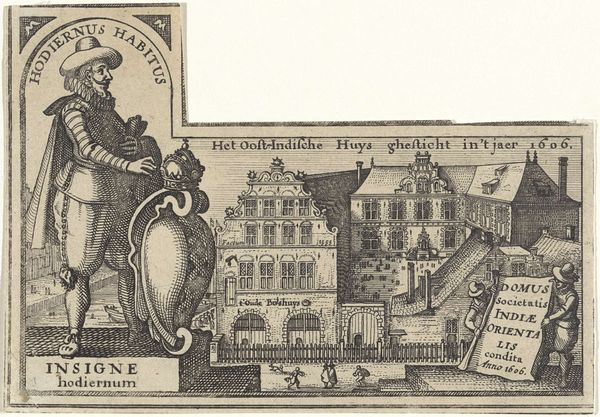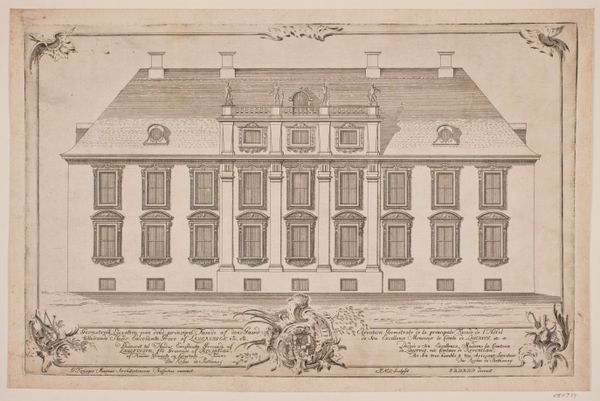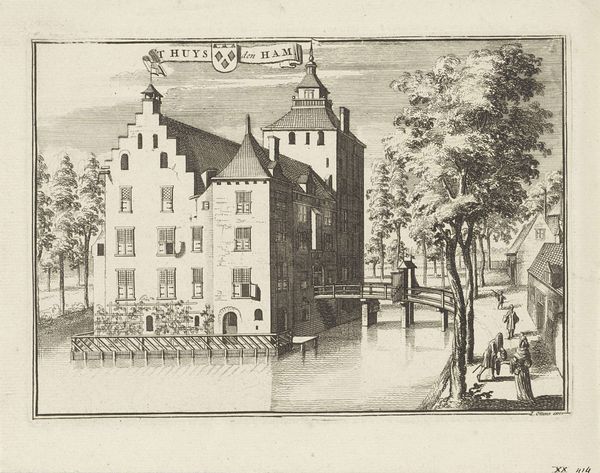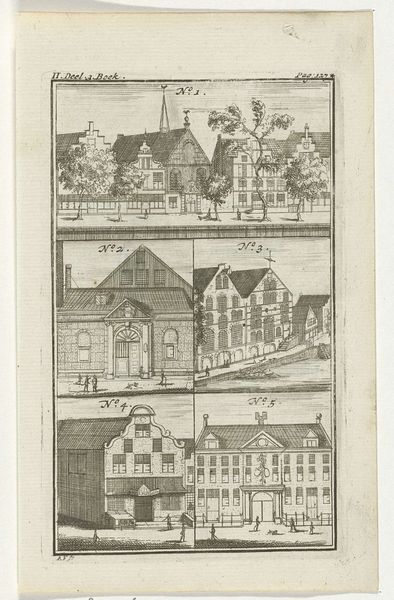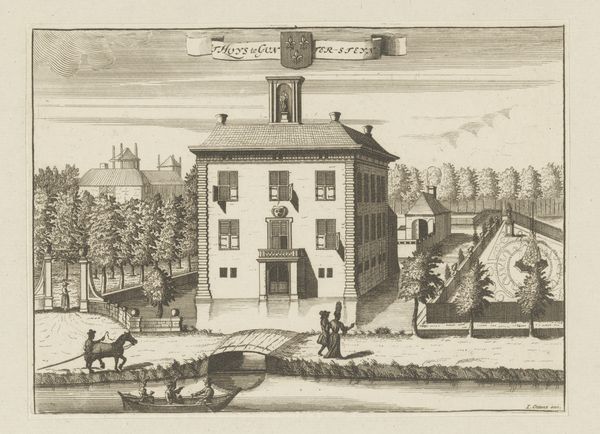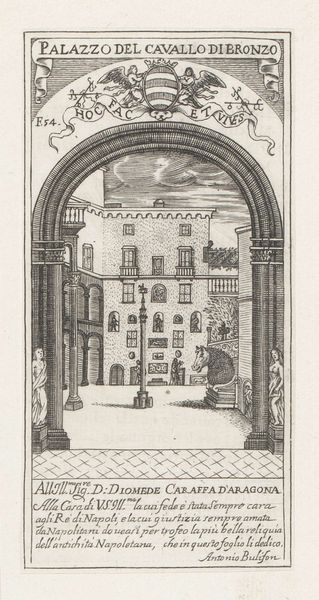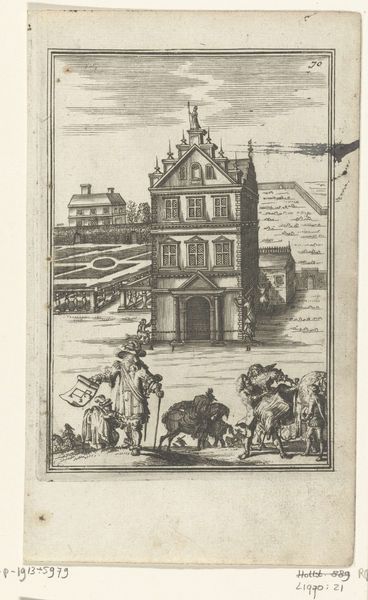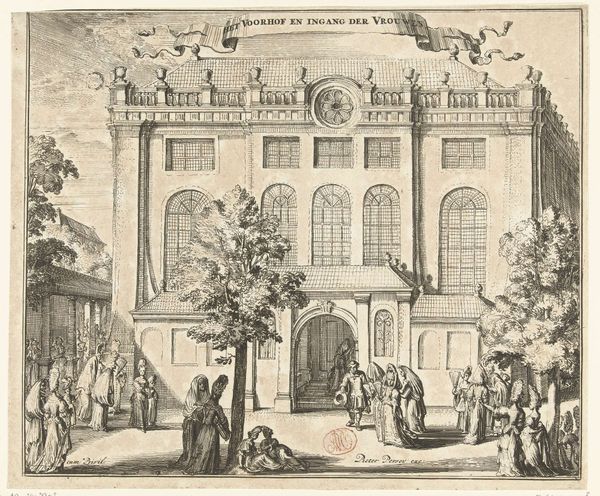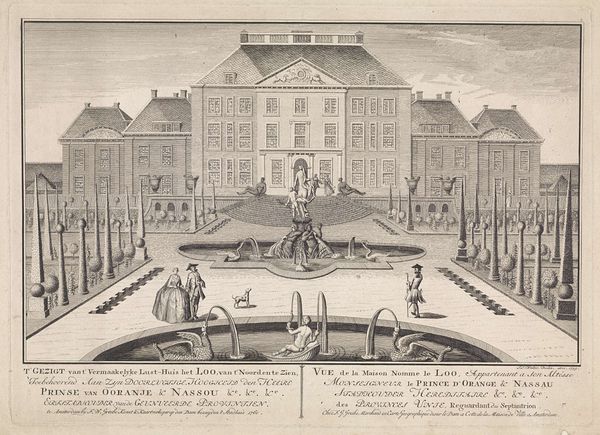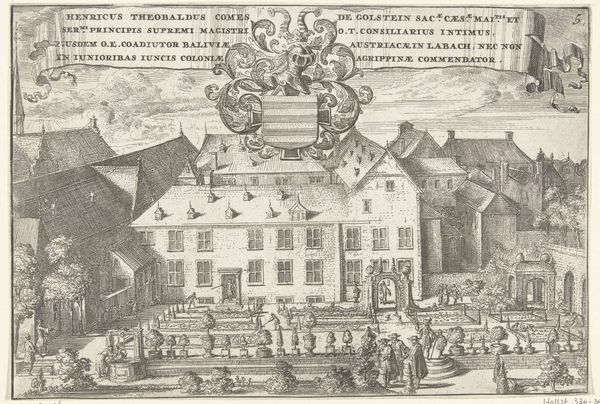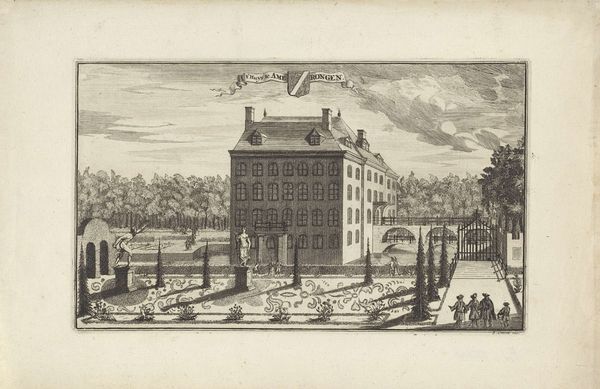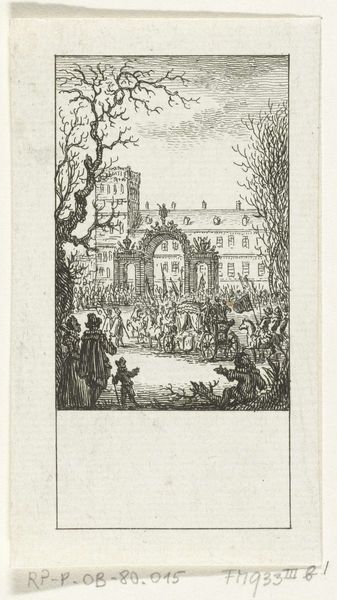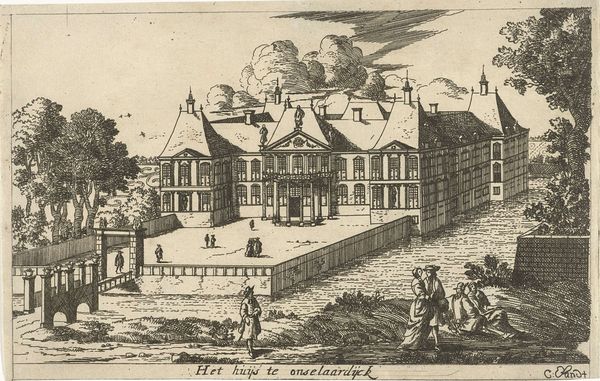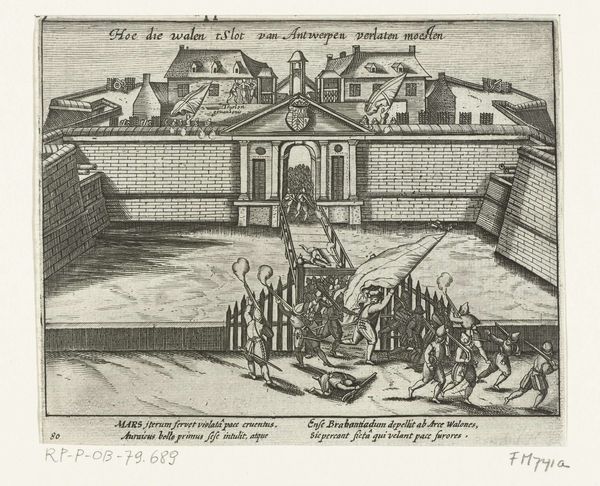
print, etching
#
dutch-golden-age
# print
#
etching
#
landscape
#
cityscape
#
history-painting
Dimensions: height 97 mm, width 138 mm
Copyright: Rijks Museum: Open Domain
Claes Jansz. Visscher’s engraving, "West-Indisch Huis te Amsterdam," made around 1623, presents a meticulously detailed view of the Dutch West India House using precise lines and structured composition. The building itself is rendered with geometric clarity, emphasizing its architectural form, where repetitive windows and steep roofs create a rigid, almost industrial aesthetic. Visscher's composition divides the print into distinct zones, balancing architectural precision with symbolic representation. The figure on the right, adorned with antiquated attire, gestures towards a globe marked with a ship, emblematic of Dutch maritime power and colonial ambition. This juxtaposition invites us to consider how the formal qualities of the engraving—its attention to detail, the structured arrangement of elements—convey deeper meanings about commerce, governance, and cultural identity. Note how the lines of the building lead your eye to a smaller, more crowded space of human activity. This directs the viewer's gaze from the structured order of the building to the mercantile activities it supports, reflecting the period’s shift towards formalized trade and the complex social structures it engendered. Thus, Visscher’s engraving is not merely a depiction but a structured argument about Dutch societal values.
Comments
No comments
Be the first to comment and join the conversation on the ultimate creative platform.
